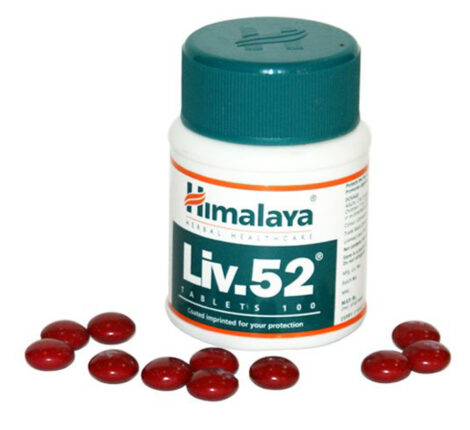Phonographic Performance Limited vs. Canvas Communications
The current order is of 2021, and under High Court of Delhi which pertains to orders 39, Rules 1 and 2 read with section 151 of CPC in demand for an interim injunction.
Point of Law used:
- Order 39 of the CPC relates to the procedure in case of grant of temporary injunction to the parties.
- Rule 1 of the CPC pertains to the temporary injunction which may be granted.
- Rule 2 of the CPC pertains to injunction orders regarding restraining repetition or continuance of breach. On the other hand, Rule 2A is regarding the consequences of disobedience of violation of injunction as mentioned above.
- Section 151 of CPC relates to the court’s inherent powers to pronounce the injunction orders.
- S.13(1)(c) of the Copyright Act, 1957 states that copyright shall subsist throughout India in sound recordings.
Background of the Case:
The plaintiff, phonographic performance limited, is engaged in issuing licenses for public performance or communication to the public of sound recordings on demand by those who own a copyright in such recordings. Section 13(1)(c) explicitly states that sound recordings are a separate work for which copyright can exist. Hence, the plaintiff is entitled to grant licenses for communication to the public of the plaintiffs’ repertoire of sound recordings to any third party/parties. It will amount to infringement under S.51(a) if such an act is done without a license. Further, if used for profits, it will amount to breach under S.51(a)(ii) of the Copyright Act.
Issue:
The plaintiff has filed this suit as a quia timet action which refers to an injunction to restrain wrongful acts which are threatened or imminent but have not been commenced. The plaintiffs got to know on 13.12.2021 that the defendant was going to put up a stall at the warehouse expo, Pragati maidan, on 16.12.2021, where it was going to use the plaintiff’s sound recordings without obtaining the requisite license. The plaintiff had issued a notice regarding the same to the defendant. The defendant did not deny using the plaintiff’s recordings but said that they were not entitled to issue licenses under the second proviso of section 33(1) of the copyright act.
The plaintiff was not a part of the copyright society at the moment since it did not re-register itself as per the 2012 copyright amendment act. However, the defendant is already indulging in the act of infringing the plaintiff’s rights at the expo. The plaintiff had also used the judgment of Novex Communication Pvt. Ltd. v. Lemon tree hotels Ltd[1] to show the similarity of facts between the two and the similar controversies that existed in both the cases. The Novex Communicationcase with regards to the maintainability of the suit was decided partially in favor and partly against the appellant. The trial court had partially disallowed the right to the plaintiff to sue for infringement of copyright under S.33 of the Act; however, this right has been granted to it by being an agent of only one party, defendant no. 2, Yash raj films. The court found and held that the appellant could not sue for copyright infringement even though it is the owner of the sound recordings because, under Section 33(1) of the Act, only a copyright society is to license copyright works of sound recordings legally. The plaintiff challenged this finding of the trial court in this case.
The learned counsel for the petitioner used this judgment to show that S.33 still allows the copyright owner to independently grant the license even if it is not a part of the copyright society. Then, the learned counsel further went on to differentiate between musical pieces mentioned in S.33 are different from sound recordings. Under this, the counsel emphasized that provision 2 of section 33(1) talks about granting licenses to musical work in sound recordings, wherein only musical or literary work is included in the latter.
Also read: The future of Copyright Societies in India
Interpretation of Sec 33 of the Copyright Act:
The court has interpreted S.33 to hold that the owner of a copyright does not have the right to issue licenses unless the owner grants exclusive rights in that regard to a copyright society. Else, the coordinate Bench has expressed that the owner’s right would exist.
Order:
The court found that the case is clearly in the plaintiff’s favor. Thus, the violation of the sound recordings in which the plaintiff holds exclusive rights is in the teeth of provisions of this act, especially concerning S.33 of the Act read with the Novex Communications judgment.
Also read: The Concept Of Copyright Society Under The Copyright Act, 1957
Conclusion:
This order is a classic case of the court interpreting the provisions of law and its previous judgments and how important it is to differentiate the aspects of copyright and not generalize it as the entire product or service. A copyrighted product or service has many elements within it that are distinctive and should be taken as such, for example, not generalizing sound recordings as music wherein they are a part of it.
[1] Novex Communication Pvt. Ltd. v. Lemon Tree Hotels Ltd. 2019 SCC online Del 6568
Authored by: Jhanvi Sahni; student at NALSAR University of Law
Disclaimer: This article is intended to provide general guidance to the subject matter. It does not contain legal advice. For any specific advice/corrections, write to [email protected]
© ZEST IP




